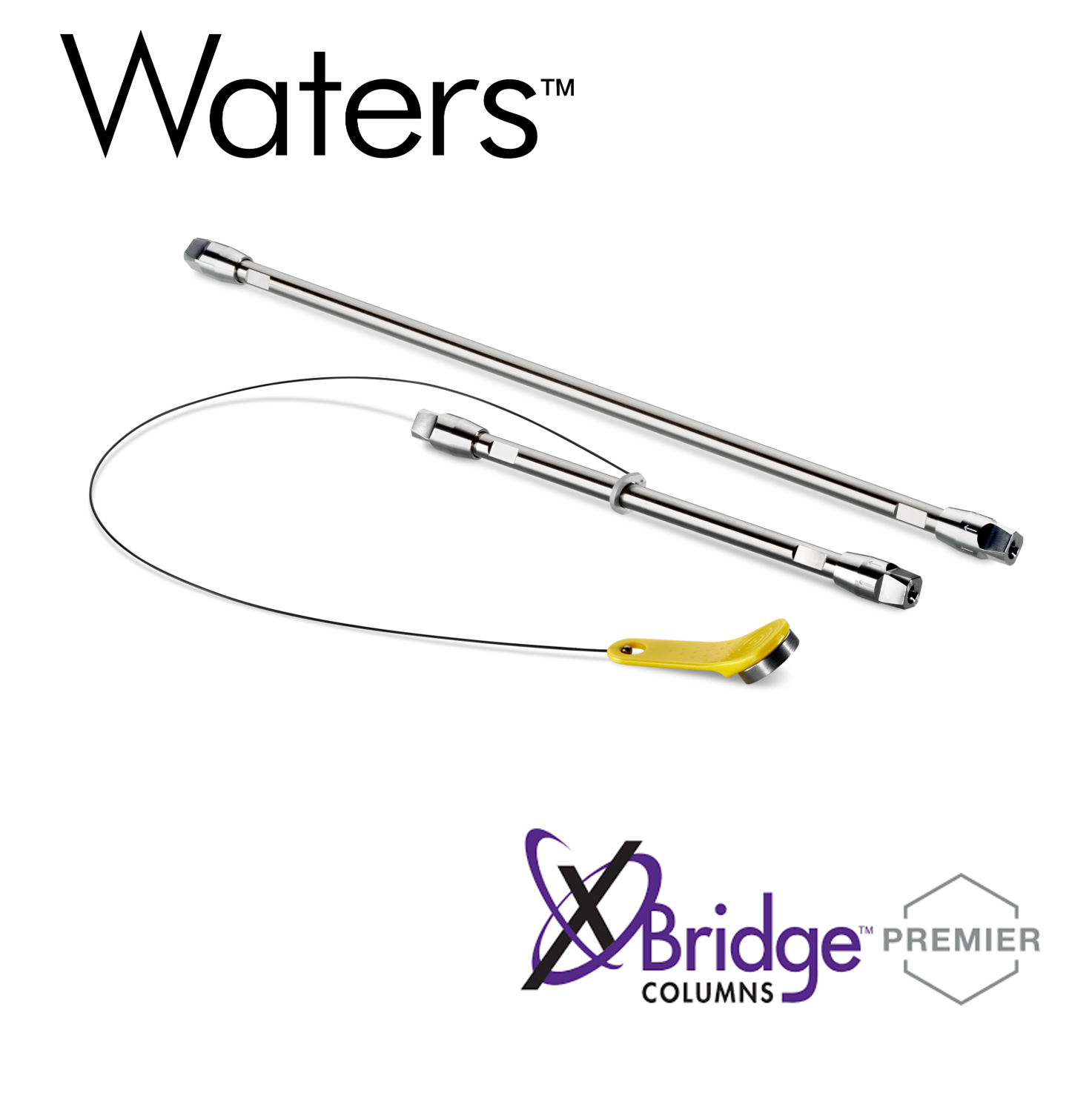Collaborating with lab engineering teams

The Crucial Role of Lab Engineering Services in Scientific Advancement

In the realm of scientific research, laboratories serve as the bedrock of innovation, where groundbreaking discoveries are made, and technological advancements are propelled forward. These specialized environments are meticulously designed and equipped to facilitate a wide range of experiments, analyses, and investigations. At the heart of this intricate ecosystem lies a critical component that often goes unnoticed but plays a pivotal role in ensuring the smooth operation and success of scientific endeavors: **Lab Engineering Services**.
Lab engineering services encompass a comprehensive suite of specialized expertise and technical capabilities that are essential for the design, construction, maintenance, and optimization of laboratory facilities. From the initial planning stages to the ongoing operation and management of these complex environments, lab engineering teams work tirelessly behind the scenes to ensure that researchers have access to the necessary infrastructure, equipment, and support systems to conduct their work effectively and safely.
The importance of lab engineering services cannot be overstated. These services are not merely about building and maintaining physical structures; they are about creating environments that foster scientific excellence, promote collaboration, and enhance the overall efficiency and productivity of research activities. In today's rapidly evolving scientific landscape, where technological advancements are constantly pushing the boundaries of what is possible, the role of lab engineering services has become increasingly critical.
The demand for sophisticated and specialized laboratory facilities has grown exponentially in recent years, driven by the increasing complexity of scientific research, the emergence of new technologies, and the need for greater precision and accuracy in experimental procedures. This has led to a surge in the demand for lab engineering services, as research institutions and companies seek to create state-of-the-art facilities that can meet the demands of modern science.
However, the challenge lies in ensuring that lab engineering services are not simply a reactive response to immediate needs but rather a proactive and strategic approach to building and maintaining laboratories that are not only functional but also adaptable, sustainable, and future-proof. This requires a deep understanding of the specific requirements of different scientific disciplines, the latest technological advancements in laboratory design and equipment, and the evolving needs of researchers.
The success of any scientific endeavor hinges on the ability of researchers to conduct their work in a safe, efficient, and reliable environment. This is where lab engineering services play a crucial role. By providing the necessary infrastructure, equipment, and support systems, lab engineering teams empower researchers to focus on their core scientific pursuits, knowing that the technical aspects of their work are in capable hands.
The impact of lab engineering services extends far beyond the walls of individual laboratories. These services are essential for driving innovation, fostering collaboration, and accelerating scientific progress. By creating environments that are conducive to research, lab engineering teams contribute directly to the advancement of knowledge and the development of new technologies that benefit society as a whole.
In the following sections, we will delve deeper into the multifaceted world of lab engineering services, exploring the key areas of expertise, the challenges and opportunities that lie ahead, and the critical role that these services play in shaping the future of scientific research.
The Power of Partnership: Optimizing Lab Operations Through Effective Collaboration with Lab Engineering Teams
In the dynamic world of scientific research and development, laboratories are the heart of innovation. These specialized environments demand a delicate balance of cutting-edge technology, meticulous processes, and skilled personnel. To achieve optimal performance and maximize scientific breakthroughs, a collaborative approach between lab technicians, project managers, procurement teams, and C-suites is essential. This article delves into the critical role of lab engineering teams in this collaborative ecosystem, exploring how their expertise can significantly enhance lab operations and drive scientific progress.
Understanding the Value of Lab Engineering Services
Lab engineering services encompass a wide range of specialized skills and knowledge that are crucial for the efficient and effective operation of laboratories. These services go beyond the traditional realm of equipment installation and maintenance, extending to encompass the design, optimization, and integration of complex laboratory systems. By leveraging the expertise of lab engineering teams, scientific organizations can unlock a wealth of benefits, including:
- Enhanced Efficiency and Productivity: Lab engineering teams play a pivotal role in optimizing lab workflows and maximizing productivity. They can analyze existing processes, identify bottlenecks, and implement innovative solutions to streamline operations. This includes optimizing equipment utilization, minimizing downtime, and ensuring seamless integration of various lab systems.
- Improved Safety and Compliance: Safety is paramount in any laboratory environment. Lab engineering teams are well-versed in safety regulations and best practices, ensuring that all equipment and systems meet the highest safety standards. They can also implement robust safety protocols, conduct risk assessments, and provide comprehensive training to lab personnel, minimizing the risk of accidents and ensuring compliance with industry regulations.
- Enhanced Data Integrity and Reliability: In today's data-driven scientific landscape, ensuring data integrity and reliability is crucial. Lab engineering teams can play a vital role in designing and implementing robust data management systems, ensuring accurate data collection, analysis, and reporting. They can also assist in integrating lab equipment with data management platforms, facilitating seamless data flow and analysis.
- Cost Optimization and Resource Management: Lab engineering teams can help organizations optimize resource allocation and minimize operational costs. They can conduct thorough equipment assessments, identify potential cost savings through energy efficiency measures, and recommend cost-effective solutions for equipment upgrades or replacements. By optimizing resource utilization, lab engineering teams can contribute to a more sustainable and cost-effective lab environment.
- Increased Innovation and Research Capabilities: By collaborating with lab engineering teams, scientific organizations can unlock new avenues for innovation and research. Lab engineers can provide insights into emerging technologies, assist in the design and implementation of custom-built equipment, and facilitate the integration of cutting-edge technologies into existing lab workflows. This collaborative approach can lead to breakthroughs in research and development, driving scientific progress.
Building a Collaborative Framework: Key Elements for Success
Effective collaboration between lab engineering teams and other stakeholders in the scientific community is essential for maximizing the benefits of lab engineering services. This collaboration requires a well-defined framework that fosters open communication, shared goals, and mutual understanding. Key elements of this framework include:
1. Clear Communication and Information Sharing
Open and transparent communication is the cornerstone of any successful collaboration. Lab engineering teams must be actively involved in discussions regarding lab operations, research projects, and future plans. This includes sharing information about equipment needs, budget constraints, and any specific requirements for new technologies or systems. Regular meetings, project updates, and clear communication channels are essential for ensuring that all stakeholders are informed and aligned on project goals.
3. Mutual Respect and Understanding
Effective collaboration requires mutual respect and understanding between lab engineering teams and other stakeholders. Lab technicians and project managers should recognize the expertise and value that lab engineering teams bring to the table. Conversely, lab engineering teams should strive to understand the specific needs and challenges faced by lab personnel, ensuring that their solutions are tailored to the unique requirements of the laboratory environment.
4. Proactive Problem Solving and Innovation
Collaboration should be a proactive process, fostering a culture of continuous improvement and innovation. Lab engineering teams should actively identify potential problems or bottlenecks in lab operations and propose solutions. They should also be open to exploring new technologies and approaches, working with lab personnel to implement innovative solutions that enhance efficiency, safety, and research capabilities.
5. Ongoing Training and Development
To ensure that lab engineering teams are equipped with the latest knowledge and skills, ongoing training and development programs are essential. This includes training on new technologies, safety protocols, and best practices in lab design and optimization. By investing in the professional development of lab engineering teams, organizations can ensure that they have the expertise to meet the evolving needs of the scientific community.
Case Studies: Real-World Examples of Successful Collaboration
Numerous real-world examples demonstrate the transformative power of collaboration between lab engineering teams and other stakeholders in the scientific community. These case studies highlight the tangible benefits of this partnership, showcasing how it can lead to improved lab operations, enhanced research capabilities, and significant scientific breakthroughs.
Case Study 1: Optimizing a High-Throughput Screening Laboratory
A pharmaceutical company was struggling to meet its drug discovery goals due to inefficiencies in its high-throughput screening laboratory. By collaborating with a lab engineering team, the company identified bottlenecks in the workflow, optimized equipment utilization, and implemented automated systems for data collection and analysis. This resulted in a significant increase in screening capacity, reduced turnaround times, and ultimately, faster drug discovery timelines.
Case Study 2: Implementing a Sustainable Laboratory Design
A research institute was committed to reducing its environmental footprint. By working with a lab engineering team, the institute implemented a sustainable laboratory design, incorporating energy-efficient equipment, water conservation measures, and waste reduction strategies. This resulted in significant cost savings, reduced energy consumption, and a more environmentally responsible lab environment.
Case Study 3: Integrating Cutting-Edge Technologies for Advanced Research
A university research lab was seeking to advance its research in nanotechnology. By collaborating with a lab engineering team, the lab integrated cutting-edge technologies, such as atomic force microscopy and electron beam lithography, into its existing infrastructure. This enabled the lab to conduct more sophisticated research, leading to groundbreaking discoveries in the field of nanomaterials.
The Future of Lab Engineering Services: Embracing Emerging Technologies
The field of lab engineering services is constantly evolving, driven by advancements in technology and the growing demand for sophisticated laboratory environments. Emerging technologies, such as artificial intelligence (AI), machine learning (ML), and the Internet of Things (IoT), are transforming the way laboratories operate, creating new opportunities for innovation and efficiency.
AI and ML for Lab Automation and Optimization
AI and ML algorithms are being increasingly used to automate lab processes, optimize workflows, and analyze large datasets. Lab engineering teams are playing a crucial role in integrating these technologies into lab systems, enabling more efficient and data-driven decision-making. For example, AI-powered systems can be used to predict equipment failures, optimize reagent usage, and automate data analysis, freeing up lab personnel to focus on more complex tasks.
IoT for Real-Time Monitoring and Control
IoT devices are enabling real-time monitoring and control of lab equipment and systems. Lab engineering teams are designing and implementing IoT solutions that provide remote access to lab data, allowing for proactive maintenance, early detection of problems, and improved safety. This connectivity also facilitates data sharing and collaboration between different lab teams and research groups.
Robotics and Automation for Enhanced Efficiency
Robotics and automation are transforming lab operations, reducing manual labor and increasing efficiency. Lab engineering teams are working with robotics experts to design and implement automated systems for tasks such as sample preparation, reagent dispensing, and data collection. This automation not only improves efficiency but also reduces the risk of human error, ensuring data accuracy and reliability.
Conclusion: The Power of Partnership for Scientific Progress
In the ever-evolving landscape of scientific research, collaboration between lab engineering teams and other stakeholders is essential for driving innovation and achieving scientific breakthroughs. By leveraging the expertise of lab engineering teams, scientific organizations can optimize lab operations, enhance safety and compliance, improve data integrity, and unlock new avenues for research and development. This partnership is not just about technical expertise; it's about fostering a culture of collaboration, communication, and shared goals, ultimately leading to a more efficient, effective, and innovative scientific community.
Partnering with IT tech for Success
The journey of scientific discovery is paved with collaboration. From the initial spark of an idea to the final publication of groundbreaking results, the success of any research endeavor hinges on the seamless integration of diverse expertise. At the heart of this collaborative ecosystem lies the crucial role of lab engineering teams. These teams, often the unsung heroes of scientific progress, bridge the gap between theoretical concepts and practical execution, ensuring that experiments are conducted with precision, efficiency, and safety.
As a leading provider of lab consumables and equipment, IT tech recognizes the profound impact of effective lab engineering services on the success of research projects. We understand that the intricate interplay between equipment, consumables, and the expertise of lab engineers is paramount to achieving reliable and reproducible results. Our commitment to fostering this collaboration extends beyond simply supplying high-quality products. We strive to be a trusted partner, offering comprehensive support and guidance to lab engineering teams, empowering them to optimize their workflows, enhance their capabilities, and ultimately, drive scientific breakthroughs.
The benefits of partnering with IT tech for your lab engineering needs are multifaceted. Our team of experienced professionals possesses a deep understanding of the unique challenges faced by lab engineers, enabling us to provide tailored solutions that address specific requirements. Whether it's selecting the right equipment for a particular application, optimizing reagent compatibility, or ensuring the seamless integration of various systems, we are dedicated to providing the necessary support to streamline your operations and maximize your research potential.
Beyond our product offerings, IT tech offers a comprehensive suite of services designed to elevate the capabilities of lab engineering teams. Our expert engineers are available to provide on-site consultations, troubleshoot equipment issues, and offer customized training programs to enhance the skills of your team. We believe that investing in the development of your lab engineering team is an investment in the success of your research endeavors.
The collaborative spirit that defines the scientific community extends to the relationship between IT tech and our clients. We are committed to building long-term partnerships, fostering open communication, and actively listening to your needs. This collaborative approach ensures that we are constantly evolving our offerings to meet the ever-changing demands of the scientific landscape. By working together, we can unlock the full potential of your lab engineering team, driving innovation and accelerating scientific progress.
In the pursuit of scientific discovery, the role of lab engineering teams cannot be overstated. They are the architects of the research environment, ensuring that experiments are conducted with precision, efficiency, and safety. Partnering with IT tech empowers these teams to reach their full potential, enabling them to play a pivotal role in driving scientific breakthroughs. By leveraging our expertise, resources, and collaborative spirit, we can work together to shape the future of scientific research.
Remember, the journey of scientific discovery is a collaborative one. Partnering with IT tech for your lab engineering needs is a strategic investment in the success of your research endeavors. Together, we can unlock the full potential of your lab engineering team, driving innovation and accelerating scientific progress.
Visit our website today to learn more about our comprehensive range of lab consumables, equipment, and services. We look forward to partnering with you on your journey of scientific discovery.
Products You may Like
Check out other IT- Tech product that suit your taste
Subscribe to our newsletter
Stay updated with IT-Tech Insights
Related posts
Check out other IT- Tech Scientific Resources

Central vs local gas supply - pros and cons
When setting up a laboratory, choosing the right gas supply system is crucial. Central gas supply involves a centralized source that distributes gas to multiple points, while local gas supply uses individual cylinders for each gas. Central systems offer advantages like cost-effectiveness for large labs and improved safety with centralized monitoring. However, they require extensive installation and maintenance. Local systems are more flexible and easier to install, but they can be more expensive and pose potential safety risks if not managed properly. This article provides a comprehensive analysis of the pros and cons of both systems, helping researchers determine the best option for their specific research needs and budget.

troubleshooting-lab-flooring-and-surface-damage
Lab flooring and surfaces are subjected to constant wear and tear from chemicals, spills, heavy equipment, and foot traffic. This can lead to damage that affects the safety and functionality of your lab. This article will guide you through the process of troubleshooting common flooring and surface damage, including identifying the causes, assessing the severity, and choosing the appropriate repair or replacement solutions. We'll cover topics such as cracks, stains, scratches, and delamination, providing practical tips and advice to help you maintain a safe and efficient lab environment.

Conventional vs specialized HVAC units
This article delves into the distinctions between conventional and specialized HVAC units, focusing on their suitability for different research environments. Conventional HVAC systems are generally cost-effective and suitable for standard lab operations. Specialized units, on the other hand, offer precise temperature and humidity control, making them ideal for sensitive research applications. The article discusses factors to consider when selecting an HVAC system, including the type of research conducted, the required temperature and humidity ranges, and the budget. It aims to provide researchers with a comprehensive understanding of the available options and help them make informed decisions for their lab's HVAC needs.










































































